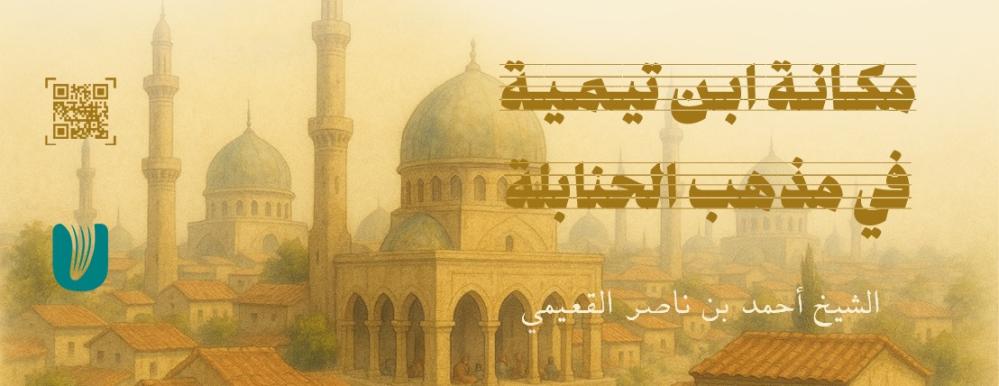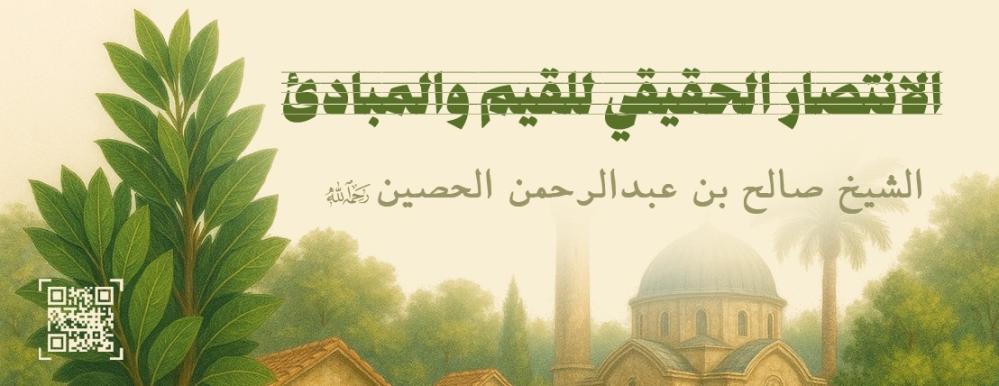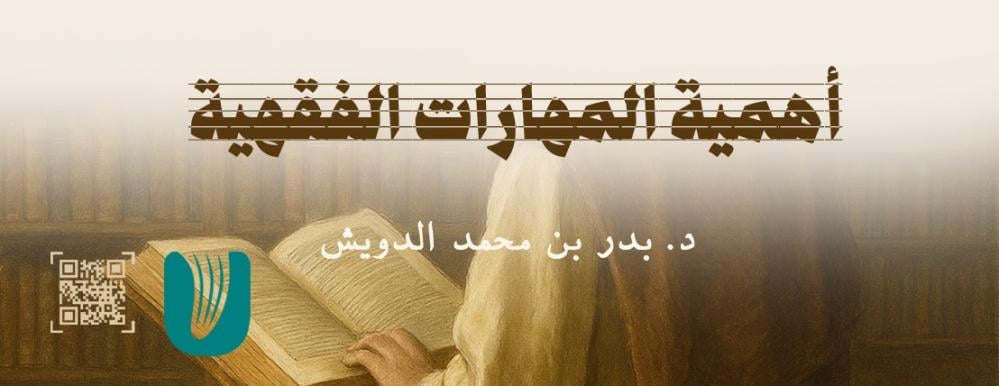The significance of victory and the outcome of prophecy
Dr. Saud bin Abdulaziz Al-Arifi
There has been many reference in the Holy Qur’an to the connotation of victory and the outcome, and the warning came to the fact that what is felt and seen from the increasing habit of God Almighty granting victory to His prophets and messengers, and supporting them and giving them victory over their enemy in various ways of appearing with teeth and tongue, and making the outcome permanent for them and their supporters and followers, even after a while, is that this is one of the greatest. The verses indicate the truthfulness of these messengers, and that if they were inventing lies against God under the pretext of prophethood and message, God Almighty would not have prevented him from supporting them and granting them victory in this consistent manner, and that would be a general deception and misleading of the creation, which the Most Merciful of the Merciful and the Wiseest of Judges would avoid.
This significance is not limited to the physical victory represented by the salvation of the Messengers and their followers, and the destruction and eradication of their enemies. Rather, it includes in addition to that moral victory, through the appearance of the Messengers’ arguments and proofs indicating their sincerity. This is one of the greatest types of victory, as it includes humiliating the enemies of the messengers and prevailing over them, even if they are not eradicated. This is like the case of the Mujahid who defeated his enemy, and the first is like the case of the Mujahid who killed his enemy (see The Prophecies of Ibn Taymiyyah: pp. 40-42).
It is not objectionable to this evidence that the infidels may gain power and have a state in many cases, as was the case with Pharaoh, Nimrod, and other infidel kings. None of them claimed prophethood and the message, so an objection like them does not apply to this evidence at all. As for those who claim That God sent him to the people, and commanded them to obey and follow him, is not without two situations: Either he is a truthful messenger, so God will support him and his followers, and make the outcome theirs, or he will be a liar, slandering God Almighty, so God will take revenge on him and cut off his roots. (See the correct answer by Ibn Taymiyyah: 416/1, 417).
Also, the appearance of the infidels over the believers sometimes is due to their sins and their opposition to their prophets, as happened to the Muslims in Uhud, and this further indicates the sincerity of the Prophet and supports it, as the course of victory and emergence - as the Sheikh of Islam says - was with following the Prophet in his presence and non-existence, without any reason. This crowds out...and this necessitates knowing that the round is a cause of the round, and our saying, without competing with another description, removes the contradictions mentioned. This extrapolation and tracking shows that God’s victory and manifestation is due to following the Prophet, and that He, Glory be to Him, wants to raise His word and victory and the victory of His followers over those who disagree with Him... This necessitates knowledge of his prophecy... This is in contrast to the infidels who sometimes defeat the People of the Book; For those who obey them do not say: I am a prophet, and they do not fight the followers of the prophets over a religion, nor do they demand that they follow them over their religion. Rather, they may declare that we only defeated you because of your sins, and that if you had followed your religion we would not have defeated you, and also there is no consequence for them, but rather God destroys. The oppressor for the oppressor, then all the oppressors are destroyed, and their murderer does not seek happiness after death, nor do they choose killing in order to be happy after death. This and others like it are what demonstrate the difference between the victory of the prophets and their followers and the emergence of some disbelievers over the believers, or the emergence of some of them over others) (The correct answer: 416/6, 417 [with a simple edit]).
It is also not permissible to object to it by saying that among the prophets were those who were killed, as in the Almighty’s saying about the Children of Israel: “That was because they used to deny the intention of God and kill the prophets unjustly” [Al-Baqarah: 61] and other verses. The situation of these people - as a sheikh says. Islam - like the condition of one of the believers who is killed as a martyr in jihad, and it is known that whoever is in this condition is more perfect than one who dies to death. Moreover, killing does not conflict with the reality of victory and emergence, for the religion for which the martyrs were killed will triumph and emerge, so its people will be happy in both worlds. Whoever was killed was A martyr, and whoever lives will be victorious and happy, and this is the ultimate goal of victory, as God Almighty said: “Say, ‘Do you wait for Us except one of the two good ones?’” [Al-Bara’ah: 52]. If this was the killing of believers, then what is the thought of killing the prophets, for there is happiness in it for them and for their followers? The two worlds are not among the greatest successes.) (The correct answer: 415/6, 426 [adapted])
This type of legal significance is in fact a rational, representative analogy. Because it is based on considering a thing with its counterpart, equating between similar things, and distinguishing between different ones, as reference to that came in the Almighty’s saying when mentioning the end of those who disbelieved among the People of the Book and how God Almighty expelled them from their homes, and revealed His Prophet over them: “It is He who expelled those who disbelieved from The People of the Book from their homes for the first time. You did not think that they would go out and thought that they were not called strongholds from God, so God protected them from where they did not They hope for hope, and He has cast terror into their hearts. They destroy their homes with their own hands and the hands of the believers. So they considered those who understand sight.” [Al-Hashr: 2], and as in the Almighty’s saying: “Indeed, in This is a lesson for those with insight” [Al Imran: 13], and that is after his saying: “And God supports with His victory whom He wills,” and as in the Almighty’s saying about the messengers: “Indeed, in their stories is a lesson for those with insight.” “Al-Baab” [Yusuf: 111].
The Sheikh of Islam said: The lesson lies in analogy and representation... If you know the stories of the prophets and those who followed them and those who lied to them, and that those who followed them had salvation, the outcome, victory and happiness, and those who lied to them had destruction and destruction, then make the matter in the future as it was in the past, then know that whoever believed them was happy, and whoever Their lying was wretched, and this is the Sunnah and custom of God, and that is why God Almighty says in fulfilling His custom and Sunnah, and that He does not nullify it or change it: “Are the unbelievers of you better than those of you, or do you have an innocence in righteousness?” [Al-Qamar: 43]. He says: If they are not better than them, how can they be saved from Torment while being similar to them?! This is by way of consideration and analogy, then he said: Or do you have innocence in punishment, meaning: Do you have news from God that He will not punish you? He denied both the rational and auditory evidence (Al-Nubawaat, pp. 378, 379, adapted, and see: Al-Fatawa 332/3).
The significance of this type of evidence for the truthfulness of the prophets is clear, as the outcome is linked to its direct cause and apparent cause. Victory is for the prophets and their followers because of their truthfulness and faith, and destruction is for the unbelievers and revenge on them for their disbelief and stubbornness. This indication is of the same type as the evidence of the other verses and miracles for the truthfulness of the prophets, and as the Sheikh of Islam said. (The fact that this was done for the sake of this and that that was the reason for this is what is known by necessity when imagining the matter as it is, such as the staff turning over into a serpent after asking Pharaoh for a sign, and the moon splitting after asking the polytheists of Mecca for a sign, and the like) (The Correct Answer: 393/6, and see from it. : 419/6 - 421).
Indeed, inference by the outcome is more accurate in achieving the purpose than inference by miracles, and that is because the evidence is of two types:
1 - A type that indicates mere knowledge of the signified without enticement or intimidation. It is of the type of abstract news and miracles of this type, as they indicate the sincerity of the Prophet, and then he learns after what the Prophet informs of commands and prohibitions, promises and threats.
2 - A type that indicates what is meant, along with exhortation or fear of it, as it is of the type of urging, requesting, will, commanding something and forbidding it, and from this is proving the prophethood of the prophets by what He did to them and their followers of a good outcome, and what He did to their disbelievers in the opposite way, and this path is more eloquent and complete, as It benefits knowledge of their truthfulness, desires to follow them, and is afraid of their disagreement (see: previous reference: 426/6, 427).
What confirms this connection and correlation between the consequence and its cause - which represents the significance of this type of evidence of prophecy - is the distinction found in the punishment and destruction of the enemies of the Messengers. For it is of a kind that is not punished except those who lie to the messengers. This is like drowning Pharaoh and destroying the people of Hood with the strong roaring wind, and the people of Salih with the shouting, and other such things called the punishment of eradication. God Almighty may kill people and destroy them with usual types of calamities such as the types of plagues and epidemics, but this is usual for non-liars. The Messengers. As for what God punishes those who deny the Messengers, it is specific to them, and for this reason it was one of God’s signs indicating the truthfulness of His prophets (see The Prophecies of Ibn Taymiyyah: p. 154).
Perhaps what bears witness to this is what God Almighty said to the Children of Israel when they asked Jesus of God to send down to them a table from heaven: “God said, ‘Indeed, I will send it down to you. And whoever among you disbelieves after that, I will punish him with a punishment that I will not punish any of the worlds.’” [Al-Ma’idah: 115].
As for the path to knowledge with this significance, it is in three cases (see: Sharh al-Isfahaniyah: pp. 102, 103, and his prophecies: pp. 163, 164):
Either it is by sight, or by hearing, or by both: As for sight and observation, it is for those who have seen and seen for themselves how God Almighty helped His prophets and destroyed His enemies. This is like the case of the Children of Israel, when God said to them: “And when We parted the sea for you and saved you, and We drowned the people of Pharaoh, and you You will see.” [Al-Baqarah : 50].
And like the case of the people of Mecca and others who saw what God Almighty inflicted on the owners of the elephant, and this also applies to the one who saw and witnessed the traces of the destroyed, and stood on them and felt them, then guarding the Kaaba is a testimony to the religion of Abraham, and a sign of the Messenger of the Seal of the Messengers. - May peace and blessings be upon them...
As for the path of hearing, it is by knowing the news that is beneficial to knowledge. Such as the frequent news of the story of Moses with Pharaoh, the story of Abraham with Nimrod, the story of Noah and the flood, and similar news from the people of religions and others.
As for the involvement of hearing and sight together, it is as if you are seeing the effects of the predecessors; Such as the homes of Thamud, and the news informs of the details of what happened to them, as if it were considered as what was the example of the previous one, and the news informs of the remembrance in that; Like the case of Noah’s Ark, in which God said: “What about them? Indeed, We carried their offspring in the loaded ark and created for them something like it that they may ride” [Yasin: 41, 42]. And God Almighty said: “Indeed, We have borne you in the ship when we crossed the waters, that We may make it a reminder for you, and that a conscious ear may comprehend it. » [Al-Haqqah: 11, 12], seeing the ships after that reminds of them, and of the news that happened about them.
Sheikh Al-Islam Ibn Taymiyyah says: (In summary, the knowledge that there were those on earth who said that they were messengers of God, and that some people followed them, and that some people disagreed with them, and that God supported the messengers and the believers, and made the outcome for them, and punished their enemies, is one of the most prominent and exalted of the mutawatir knowledge, and transmitted these matters. It is clearer and clearer than transmitting the news of the kings of the Persians and the Arabs during the pre-Islamic period, and the news of the Greeks and the medical scholars, the astrologists, and Greek philosophy... Every rational person knows that transmitting the news of the prophets and their followers is transmitted by people of a religion whose number cannot be counted except God, and they write it down in books, and its people are among the most religious people who have the obligation to Honesty and the prohibition of lying, because in the common custom between them and the rest of the human beings is what prevents their agreement and collusion to lie, but rather what prevents their agreement to conceal what there are motives and motives to convey) (Sharh al-Isfahaniyya: p. 103, and see: Prophethood for him: p. 37).
Due to the apparent significance of this type of prophecy, the virtue of the one whose faith was emanating from him was not the same as the virtue of the one who believed in the message before the appearance and victory; These people used their insight and submitted to the truth from the beginning (see: Miftah Dar Al-Saada, by Ibn Al-Qayyim: 13/2).
Since we have previously stated the truth of this type of evidence of prophecy, its significance, the ways of knowing it, and the objections and refutations that may be presented to it, let us take a look below at some of the Qur’anic references to this evidence:
1 - God Almighty said: “And traditions passed before you. So travel in the land and see what was the end of the deniers.” [Al Imran: 137] Ibn al-Qayyim said: (That is, before you there were nations like you, so look at their bad consequences, and know that the reason for that is what It was from denying the signs of God and His messengers, and they are the origin and you are the branch, and the universal reason is denial and the decree of destruction) (I’lam al-Muwaqeen: 181/1).
This verse contains the command to walk through the land, and this is both physical and moral: physical for whoever wants to see it, so if he does not see it in his country, let him go and look at it wherever he is, and morally by contemplating the news of those from the past, remembering their traces, and considering the sights that take place in the heart. Their pastures, and the remains of their dwellings, as God Almighty said: “So those are their houses empty because they have wronged. Indeed, in that is a sign for a people who know. And We saved those who believed and feared.” [An-Naml: 52] , 53].
2 - God Almighty said: “Have they not seen how many generations We destroyed before them? We established them in the land as it had not been established for you, and We sent the heaven upon them in rain and made it a punishment It would flow from under them, so You destroyed them for their sins, and We created after them a generation of others.” [Al-An’am: 6]. Ibn al-Qayyim said: (So mention Glory be to Him, the destruction of those before us from the centuries, and He explained that this was for the meaning of analogy, which is their sins, so they are the origin, and we are the branch and the sins are the universal cause, and the ruling: destruction, so this is purely analogy of the cause, and God Almighty confirmed it in a way from the first, which is that those before us were stronger than us. But their strength and intensity did not prevent them from what befell them.” (I’lam al-Muqaw’ina: 182/1).
3 - The Almighty said: “We will show them our signs in the horizons and in their souls until it is clear to them that it is the truth.” » That what is meant is the Arab countries. (See: Al-Kashshaf: 395/3, and Tafsir Al-Tabari: 5/25).
4 - God Almighty says: “And if he had uttered some words against us, we would have taken him by the right hand, then We would have severed from him the two joints. But there is not one of you who can withhold from him.” [Al-Haqqah: 4 4 - 47]. And God Almighty says: “Or do they say, ‘He has invented a lie against God?’ If God wills, He will seal your heart, and God will blot out falsehood and establish the truth by His word” [Al-Shura: 24].
What is the meaning of the verses that indicate that God Almighty would not have given victory to His Prophet and supported him with all kinds of manifestations and empowerment if he had been the one who had slandered him? It was mentioned in the first verse that if you had said some words, He would have destroyed him, so what if he had spoken the entire message? ! (See Ibn Taymiyyah’s Prophecies: p. 345.)
Ibn Taymiyyah said, commenting on the second verse: (His erasure of falsehood and his establishment of truth are news from him that he must do... For if he revealed his words, he indicated by them that he was a truthful prophet, since they were a sign for him, and by them he clarifies truth from falsehood, and he also establishes truth and invalidates falsehood. Through His words by which things are made, the truth is established by what He reveals of the signs, and by what He supports the people of truth, as His word preceded that, as He said: “And Our word has preceded to Our messenged servants. Indeed, they are the ones who will be helped, and indeed, Our soldiers are the ones who will be victorious.” Afat: 171 - 173) (Prophecies: p. 346.)
5- God Almighty said on the authority of Shuaib: “And there will arise a people whose recompense will not condemn you, lest something befall you like what befell the people of Noah, or the people of Hud, or the people of Salih, and the people of Lot are not far from you » [Hud: 89], and similar to the saying of a believer in the family of Pharaoh: “And he who believes will rise up.” Indeed, I fear for you something like the Day of Rebellion, like the habit of the people of Noah, Ad, Thamud, and those after them. And God does not intend injustice for His servants.” [Ghafir: 30]. 31], Even though this speech comes out as an exhortation and reminder, it is a rational inference for the truthfulness of the prophets indicative of the good and bad consequences for them. To their enemies, as mentioned above, and yet it is emotional and carries the method of enticement and intimidation.
6- The Almighty said: “And indeed, Lot was of the messengers when We delivered him and all his family” (Al-Saffat: 133, 134). Making the deliverance an adverb for his being one of the messengers is an indication of the evidence in this deliverance of his sincerity and God’s support of him. Ibn Ashour said: (But he only specified when His salvation by making him a circumstance for the universe of messengers, because that time is a circumstance for the circumstances that indicate his message, as they are similar to the circumstances of the messengers before and after (Al-Tahrir wal-Tanwir: 171/23)
7 - One of the nice Qur’anic references to this significance is the saying of the believer of Pharaoh’s family about Moses: “And if he is truthful, some of that which he promises will befall you” [Ghafir: 28]. It is as if he said to them: (The least of his truthfulness is that some of what he promises you will befall you, and some of that will destroy you) (The Meanings of the Qur’an and Its Parsing, by Al-Zajjaj: 372/4). The meaning of this is that if some of what he promises them of destruction befalls them, it is proof of his truth, so what if everything he promises befalls them?! This is actually the reality, as he knew of the end of Pharaoh and his soldiers. God Almighty said: “So We captured him and his soldiers and dispersed them into the sea; then see what was the end of the wrongdoers” [Al-Qasas: 40].
But it should be noted here that this rational indication only took place after the drowning of Pharaoh, and before that it was from the believers of Pharaoh’s family as a matter of preaching and argument. As for the proofs that he used as evidence against them before that - which are the verses of Moses - he pointed out to them when he said: “And he has come to you with clear proofs.” From your Lord” [Ghafir: 28].
Click here to access the full book page.
Click on the image to access the image version (pdf), which can be downloaded and published.





